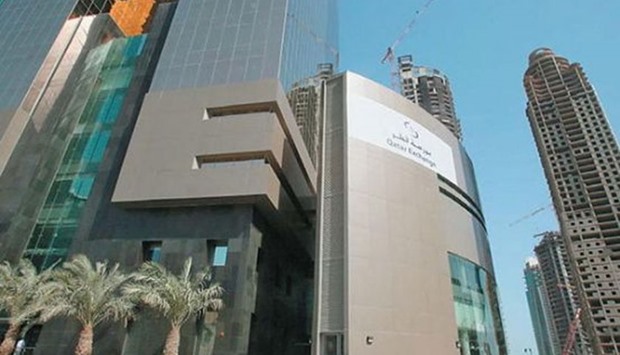The historic oil producers’ meet, which saw a production cut for the first time in eight years, had its overarching influence on the Qatar Stock Exchange (QSE), which was the second best performer among the Gulf bourses during the week.
Industrials, insurance, realty and telecom counters witnessed heavy demand, which led the local bourse gain more than 2% during the week which saw the Organisation of Petroleum Exporting Countries (Opec) announce 1.2mn barrels per day production cut to salvage the over-supplied global market.
Saudi Arabia, an influential constituent in the Opec, saw its bourse vault 4.37%, Muscat (1.25%), Dubai (1.11%), Kuwait (0.94%) and Abu Dhabi (0.84%), while Bahrain fell 0.7% during the week which witnessed Milaha and Mwani (Qatar Ports Management Company) ink a pact to establish a 49:51 joint venture to manage the QR27bn Hamad Port.
QSE, however, saw year-to-date losses at 4.94% compared to 3.13% in Bahrain and 0.82% in Kuwait; whereas Dubai gained 6.66%, Muscat (3.4%), Saudi Arabia (2.63%) and Abu Dhabi (0.04%).
A substantially lower net selling by local retail investors and increased net buying by non-Qatari individual investors helped fuel the bullish sentiments in the QSE during the week which saw global oil price hit a six-week high on Opec deal.
Islamic stocks rose faster than the conventional scrips during the week which saw Qatar's producers’ price index decline 1.7% in September this year compared to that in the previous month.
Micro, mid and large cap equities received strong demand but they underperformed the main index during the week which however saw that the Institute of International Finance forecast that oil price may not breach the $60 a barrel in the next five years.
Trade turnover and volumes substantially increased during the week which witnessed telecom and banking sectors together constituted more than 76% of the total volumes.
In volumes, telecom sector constituted 57% of the total, followed by banks and financial services (19%), industry (9%), real estate (8%), consumer goods and transport (3% each), and insurance (1%) during the week.
In value, banks and financial services’ share was 33%, followed by telecom (25%), industrials (20%), consumer goods (8%), realty (7%), transport (4%) and insurance (3%) during the week.
Opening the week marginally stronger at 9,734 points, the market was however on losing path for the next two days, taking the index to a low of 9,636 points on Tuesday. The Opec meet did its maverick for the next two days with the index gaining as much as 278 points to finally settle at 9,914 points during the week.
The 20-stock Total Return Index rose 2.05%, All Share Index (comprising wider constituents) by 1.76% and Al Rayan Islamic Index by 2.23% during the week, which saw telecom and industrials register faster expansion in trade volumes.
Industrials saw its index surge 3.17%, insurance (3.01%), real estate (2.69%), telecom (2.29%), consumer goods (1.79%), transport (1.7%) and banks and financial services (0.37%) during the week.
Market capitalisation soared more than QR9bn or 1.72% to QR533.89bn with micro, mid, large and small cap equities gaining 1.87%, 1.73%, 1.59% and 0.4% respectively during the week.
Small, mid, micro and large cap stocks have nevertheless reported year-to-date losses of 15.1%, 8.78%, 7.52% and 2.81% respectively.
Of the 44 stocks, as many as 28 gained, while 14 fell and one was unchanged. Another one was not traded. Seven of the 13 banks and financial services, six each of the nine consumer goods and the eight industrials, all the four realty, two each of the five insurers and the three transport, and one of the two telecom stocks settled lower during the week.
More than 65% of the stocks extended gains with major movers being Industries Qatar, Gulf International Services, Qatar Insurance, Mazaya Qatar, Ooredoo, Milaha, Barwa, Ezdan, Qatari Investors Group, Qatar Electricity and Water, Mesaieed Petrochemical Holding, Alijarah Holding, Widam Food and Al Meera.
Nevertheless, Vodafone Qatar, Nakilat, Dlala, Medicare Group, al khaliji and Al Khaleej Takaful were among the losers during the week.
Local retail investors’ net profit booking weakened substantially to QR22.62mn against QR119.41mn the week ended November 24.
Non-Qatari individual investors’ net buying strengthened perceptibly to QR21.12mn compared to QR15.23mn the previous week.
However, domestic institutions turned net sellers to the tune of QR2.4mn against net buyers of QR85.75mn the week ended November 24.
Foreign institutions’ net buying declined to QR3.9mn compared to QR17.63mn the previous week.
Total trade volume more than doubled to 65.45mn shares, value soared 87% to QR1.5bn and transactions by 26% to 16,608 during the week.
The telecom sector’s trade volume more than quadrupled to 37.62mn equities and value more than tripled to QR377.24mn on more than doubled deals to 4,980.
The industrials sector’s trade volume more than tripled to 5.56mn stocks and value also more than tripled to QR292.73mn on 44% increase in transactions to 2,542.
The insurance sector’s trade volume more than doubled to 0.58mn shares and value also more than doubled to QR41.24mn on 3% jump in deals to 484.
The banks and financial services sector saw 65% surge in trade volume to 12.25mn equities and 33% in value to QR494.7mn but on 3% fall in transactions to 4,228.
The consumer goods sector’s trade volume shot up 59% to 2.15mn stocks, value by 44% to QR124.88mn and deals by 19% to 1,869.
There was 42% expansion in the transport sector’s trade volume to 2.11mn shares, 36% in value to QR65.12mn and 10% in transactions to 933.
The real estate sector’s trade volume increased 18% to 5.19mn equities and value by 18% to QR102.24mn, while deals shrank 13% to 1,572.
In the debt market, there was no trading of treasury bills and government bonds during the week.


